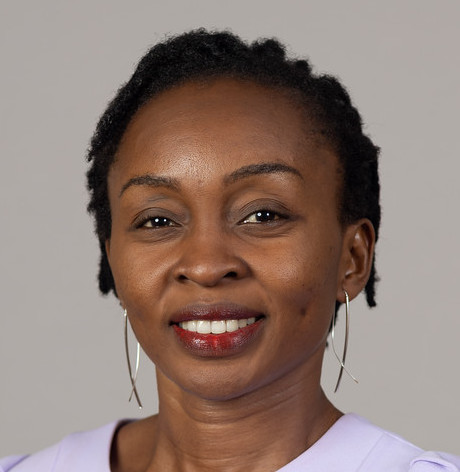
Nigeria’s acclaimed novelist Chinua Achebe once asserted that the trouble with Nigeria was leadership and nothing more. Over the years, his definitive thesis on the Nigerian condition has been recalled multiple times to understand the challenges that impede social progress. Achebe focused on the political class and perhaps did not fully envisage how the crisis of leadership he described forty years ago would severely indict the intelligentsia he himself represented. The modern Nigerian state he diagnosed has since gone through several phases and wrestled with leadership failure at every point. Having thus been serially let down, its beleaguered citizens have learned to look everywhere else for meaningful administration that will guarantee moral renewal and eventual social transformations. Their wild search for leadership that will combine moral legitimacy with both intelligence and managerial perspicacity would settle on the unlikely figure of the contemporary Pentecostal pastor.
This clergy figure, as sociologist Ebenezer Obadare describes in his latest book Pastoral Power, Clerical State: Pentecostalism, Gender, and Sexuality, is probably the most dynamic in contemporary Nigeria. Typically male, he is a combination of a rock star, social (media) influencer, political analyst and lobbyist, artiste, motivational speaker, sex therapist, counselor, entrepreneur, social critic, and of course, clergyman. This composite functionality allows him to perform the roles that society traditionally ascribes to its thought leaders. At first glance, the clergymen-as-intellectual type does not appear to be a historically unique phenomenon. Western history is replete with examples of clergymen who advanced social and political transformations through the power of ideas (think Dr. Martin Luther King, Jr. and the Civil Rights Movement). The Pentecostal clergy cannot be said to fulfill similar progressive roles as King or other previous clergy leaders but is still no less influential. The social significance of the Pentecostal pastor lies in his ability to astutely translate the mythical components of religion into idioms and practices that not only divine the condition of the Nigerian person but also suggest redress and reforms.
The Pentecostal pastor is closest to what contemporary Nigeria has in place of an intellectual—that quintessential man of learning who generates the idea that transforms society. Yet, that usurpation fails to translate into human flourishing within the clerical state. Written in the delightful prose Obadare is well-known for, Pastoral Power, Clerical State masterfully dissects the historical and political shuffles that have enabled the pastor to slide into the position previously occupied by the intellectual. In Obadare’s chronicle of the fall from grace of the Nigerian intellectual class, he perceptively locates the moments where their stars began to dim in the socio-political firmament. He does not blame any party but describes how the military government that ruled Nigeria at several junctures slyly coopted the intelligentsia and corrupted them with money and power. Having exposed these elites as self-serving and even opportunistic, the military state proceeded to discard them. Their use and abuse culminated in the ongoing crisis of the academy in today’s Nigeria; neither the intellectuals nor the ivory towers they metonymize have recovered.
The social significance of the Pentecostal pastor lies in his ability to astutely translate the mythical components of religion into idioms and practices that not only divine the condition of the Nigerian person but also suggest redress and reforms.
Pentecostal pastors did not cheaply step into the vacuum created by the diminished intelligentsia. Some of them, especially the most influential, had university training, professional degrees, and even obtained the highest academic degree. Thus, their concurrent identities as pastors and thought leaders, “Men of God” and “Men of Letters,” confers them with charismatic and “rational” authority. This means that when the intellectuals within and surrounding the university system became impotent, the pastors could not only logically supplant them, but they also added an air of religious mystique to their positions. Attaining such status was not merely given; it was also contrived to accrue through various means: pastors’ claims to a divine calling and endorsement by transcendental authority, their drawing on an immanent source of power, manipulative uses of prophecies and prayer, theatrical skills and spectacular displays, and the right dosages of sexual appeal. All of these allowed them to dominate the socio-political sphere.
This clerical authority, Obadare also shows, exists as an alternative that threatens to override the political sphere and its actors. While its existence sparks some tension with the state, both sides also work in tandem. Much of what results between the church and the state is a calibrated balance of mutual benefits. The pastor grants the politician spiritual enablement and moral legitimacy by generating ideas that pacify a restless society. The politician reciprocatively boosts the pastor by using the instruments of political power to give his spiritual power the necessary political efficacy. Despite all the influence Obadare ascribes to Pentecostal clergy, pastors do not—because they cannot—claim commensurability with political agents at the highest echelons of power. They rely—perhaps overly—on the political instruments extended in their direction by the secular authority for them to execute formidable spiritual power. This contingency means that their power lies more in the realm of influence. It is the close relationship with those who wield the actual instruments of political power that enables them to manifest their claims to spiritual power. This puts the pastors in competition with other social and political actors similarly struggling for a more potent power that outpaces the fragility of their existing ones.
Since the book is thus an account of one of the many in the series of constant reshuffle and power “takeovers” in Nigeria, one also sees the fragility of the clerical authority of the Pentecostal pastor. The near miraculous rise of the clergymen’s fortunes also precipitates their eventual fall. Obadare’s study is situated within broader studies that have noted an ongoing global crisis of authority and diminishment of the expert. While his focus in the book is mainly on the diminishment of those who embody rational and scientific knowledge, how long before the global phenomenon of “common” people standing up to expert authority reaches the pastoral figure who claims spiritual expertise? In these cycles of boom and bust of political fortunes in Nigeria, what would the fall of clerical power look like and what else would come after it?
Obadare’s portrayal of clerical power as so immense, and merely short-circuited on a few occasions by women who allege various sexual infractions against the pastors, runs against other realities of late modernity. Neoliberalism and its enticing promises of rewards through digital capitalism have further democratized both charisma and religious authority. With the various devices of media communication at their behest, otherwise ordinary folks now feign charisma using the same tactics as these powerful pastors too once did in order to challenge their authority. Social (media) influencers and entrepreneurs of opinions who either have genuine concerns about these pastors’ conduct or are mere clout seekers routinely stimulate public conversations against the pastoral class. Largely unable to control these public discourses, the average Nigerian pastor remains haunted by the newfound and heady power wielded by the disaffected and disenfranchised mob that uses social media as its pulpit, and whose “speaking truth to power” chips away at their legitimacy. A notable example is the case of Ifedayo Olarinde, the radio host who started a campaign against tithes in churches on social media and rattled the Pentecostal establishment.
Pastoral Power, Clerical State is the second in a series of works where Obadare has tracked Nigeria’s political and social culture. The earlier book, Pentecostal Republic: Religion and the Struggle for State Power in Nigeria, similarly gave shape to the Pentecostal specter that haunts the country’s 4th republic. His analysis was so insightful that Pentecostal Republic became the oracle that sociologists, political scientists, and media analysts consult to understand the intricate ways religion unsettles Nigerian politics. Obadare’s insightful analysis outlines how new rulerships emerge in Africa’s yet unstable democracies while highlighting the nature of politics, power, legitimacy, and the evolution of democracy. Pentecostal pastors’ amassment of influence (which sometimes transcends national boundaries) has also allowed them to overtake traditional civic space actors. The ensuing crisis Obadare describes also sheds some light on other factors in the polity—the bitter disappointments of democratic governance for people who fought for civil rule, their further search for power and transformative knowledge, and how Pentecostalism came to fulfill the yearning for moral renewal in the aftermath of an autocratic order.

